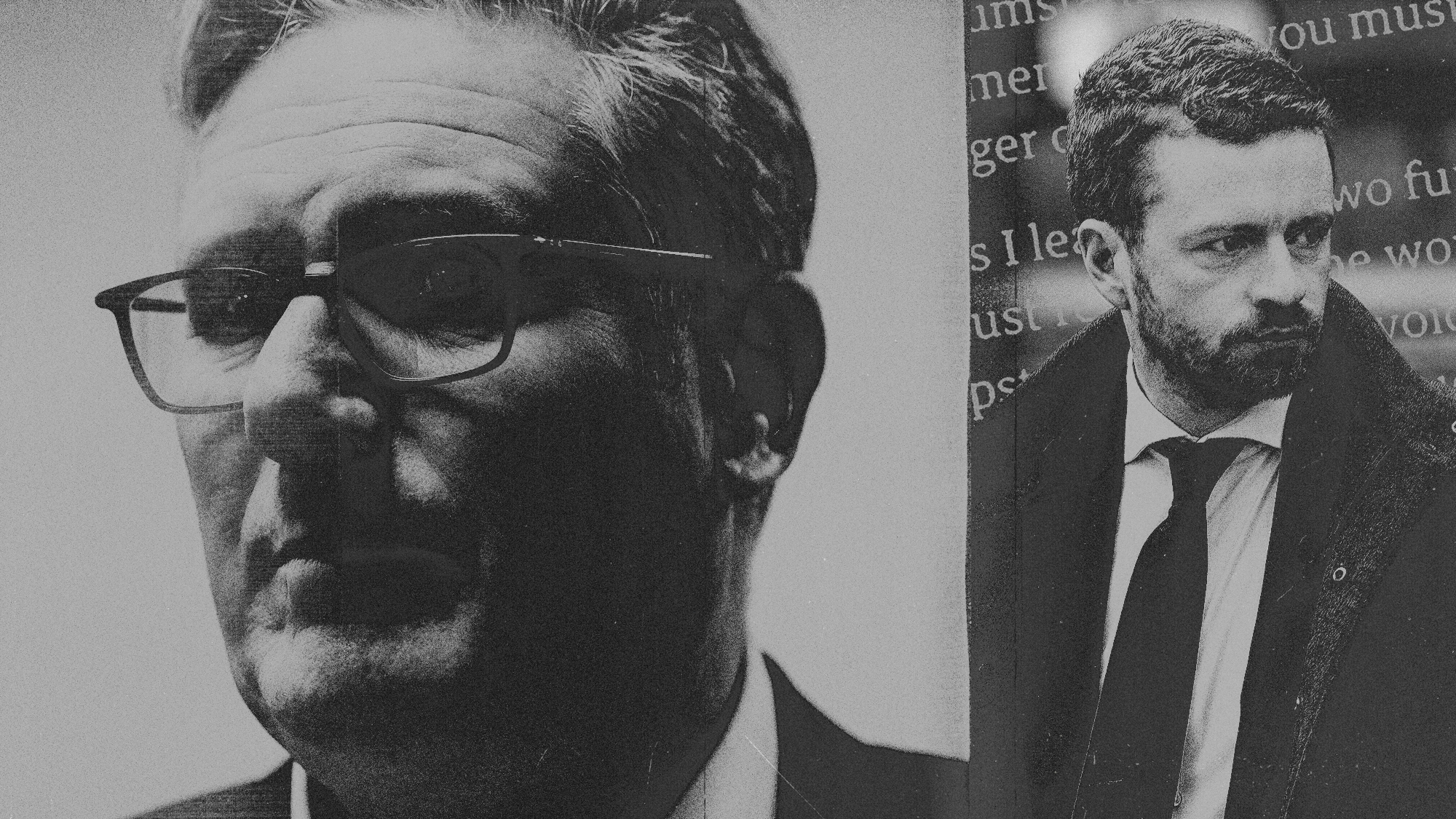Stop hiding things in your sock drawer!
It's the first place burglars look

A free daily email with the biggest news stories of the day – and the best features from TheWeek.com
You are now subscribed
Your newsletter sign-up was successful
Think you're being crafty by stowing that roll of emergency cash at the back of your sock drawer? Assuming it will be camouflaged amid all those delightful polka dots and stripes, or overlooked in the face of aggressive argyle?
Think again.
The sock drawer is among the most common places people stash money, jewelry, and other valuables — and burglars know it. The average thief takes just eight to 12 minutes in a home, and he or she is going to start by making a beeline for the master bedroom and that unassuming dresser drawer. Other not-as-secret-as-you'd-hoped spots in the bedroom include under the mattress and inside desks and closets. Americans are also fond of using the freezer or the cookie jar. And wall art that fronts a safe or secret compartment is less cunning than you might think (Shawshank Redemption aside).
The Week
Escape your echo chamber. Get the facts behind the news, plus analysis from multiple perspectives.

Sign up for The Week's Free Newsletters
From our morning news briefing to a weekly Good News Newsletter, get the best of The Week delivered directly to your inbox.
From our morning news briefing to a weekly Good News Newsletter, get the best of The Week delivered directly to your inbox.
Our lack of creativity might not be such a problem if we carted our precious possessions to the safe deposit box as regularly as we once did. But it's estimated that nearly half the safe deposit boxes in the country are empty today, and some banks aren't even including them in new branches. As for cash in particular, stockpiling savings at home is surprisingly common.
There are many reasons to reconsider this strategy. Free-floating money does not have the same loss protections as when it's kept in an FDIC-insured bank account. You're not earning any interest. A fire or other disaster could rob you of all your hard-earned savings. Or you could forget where you put the money and either accidentally throw it away or leave it behind. (Or someone else could do it for you, as with the Israeli woman who unknowingly replaced her mother's million-dollar mattress.)
If, however, you insist on keeping cash around — or if you have valuables that you're unwilling to put in a safe deposit box — be smart about where you hide them. Pick a place that will be easily overlooked by a thief, and that will remain undisturbed by house guests or pets. Keep in mind that it's easiest to remember a hiding place if you pick just one. And to avoid accidental tossing, you may want to let someone you trust in on the secret.
Here's a round-up of seven clever options, both do-it-yourself and for purchase:
A free daily email with the biggest news stories of the day – and the best features from TheWeek.com
1. The hollow book is a classic of concealment. You can create one yourself or buy it online. The ruse will be most effective if you have a large enough book collection that the imposter doesn't stand out.
2. Whether you're partial to fake beverages, jars of peanut butter, or containers of salt, there are plenty of so-called diversion safes that can hide in plain sight in the kitchen. All have secret compartments for your valuables. Alternately, you can repurpose containers on your own depending on the product (think mustard and mayonnaise jars).
3. Feel more secure in the bathroom? Try bogus shaving cream, hair brushes, or deodorant. Or consider reusing an old medicine bottle once it's empty.
4. Faux air vents and electric sockets also blend in nicely, and can front secret storage.
5. The Rubik's cube safe is in a category by itself. No, it's not a working puzzle. But it does have a hidden compartment, accessible by turning the middle three layers in a specific combination. Just hope the burglar doesn't recognize it's not the same size as the classic Rubik's.
6. Buy a can of tennis balls and cut a small slit in each one. It'll work similarly to those small coin purses that open when you squeeze their sides and pop back into shape afterward. Stow it with other athletic gear and no one will ever know.
7. Find an old canister-style vacuum cleaner, which typically can be converted into a storage compartment. No burglar is going to stop to clean up after himself.
Alexis Boncy is special projects editor for The Week and TheWeek.com. Previously she was the managing editor for the alumni magazine Columbia College Today. She has an M.F.A. from Columbia University's School of the Arts and a B.A. from the University of Virginia.
-
 Who is Starmer without McSweeney?
Who is Starmer without McSweeney?Today’s Big Question Now he has lost his ‘punch bag’ for Labour’s recent failings, the prime minister is in ‘full-blown survival mode’
-
 Hotel Sacher Wien: Vienna’s grandest hotel is fit for royalty
Hotel Sacher Wien: Vienna’s grandest hotel is fit for royaltyThe Week Recommends The five-star birthplace of the famous Sachertorte chocolate cake is celebrating its 150th anniversary
-
 Where to begin with Portuguese wines
Where to begin with Portuguese winesThe Week Recommends Indulge in some delicious blends to celebrate the end of Dry January
-
 Walter Isaacson's 'Elon Musk' can 'scarcely contain its subject'
Walter Isaacson's 'Elon Musk' can 'scarcely contain its subject'The latest biography on the elusive tech mogul is causing a stir among critics
-
 Welcome to the new TheWeek.com!
Welcome to the new TheWeek.com!The Explainer Please allow us to reintroduce ourselves
-
 The Oscars finale was a heartless disaster
The Oscars finale was a heartless disasterThe Explainer A calculated attempt at emotional manipulation goes very wrong
-
 Most awkward awards show ever?
Most awkward awards show ever?The Explainer The best, worst, and most shocking moments from a chaotic Golden Globes
-
 The possible silver lining to the Warner Bros. deal
The possible silver lining to the Warner Bros. dealThe Explainer Could what's terrible for theaters be good for creators?
-
 Jeffrey Wright is the new 'narrator voice'
Jeffrey Wright is the new 'narrator voice'The Explainer Move over, Sam Elliott and Morgan Freeman
-
 This week's literary events are the biggest award shows of 2020
This week's literary events are the biggest award shows of 2020feature So long, Oscar. Hello, Booker.
-
 What She Dies Tomorrow can teach us about our unshakable obsession with mortality
What She Dies Tomorrow can teach us about our unshakable obsession with mortalityThe Explainer This film isn't about the pandemic. But it can help viewers confront their fears about death.